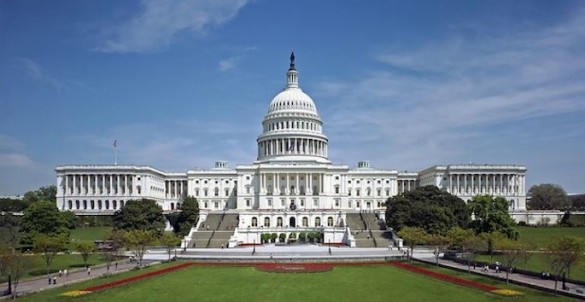
The power of Congress to influence an issue dilutes as more congressional committees get involved, according to research from the Center for the Study of Democratic Institutions.
“By surveying nearly 2,000 federal executives responsible for implementing agency policy in 128 agencies and bureaus, we found that the more committees involved in monitoring and directing agencies, the less influence Congress has relative to the president over agency policy decisions,” said the authors of a forthcoming article in American Journal of Political Science.
The paper, “Influencing the Bureaucracy: The Irony of Congressional Oversight,” was written by Josh Clinton, associate professor of political science and co-director of CSDI at Vanderbilt; David Lewis, holder of the William R. Kenan, Jr. Chair at the College of Arts and Science and co-director of the CSDI at Vanderbilt; and Jennifer Selin, a CSDI graduate affiliate and doctoral candidate in the political science department of Vanderbilt.
“Overall, this research suggests that the more Congress cares about an issue, at least as reflected in the structure of the congressional committee system, the less influence Congress may have over the direction of agency policymaking,” Clinton, Lewis and Selin write.
The authors suggest two explanations.
“First, as the number of committees involved in overseeing an agency increases, the time and resources needed for committees to work together also increases,” they write. Where the president can act unilaterally to change agency policy, Congress must coordinate a collective response to agency actions.
Secondly, more lawmakers on committees and subcommittees leads to more disagreements, and disagreements limit the ability of Congress to articulate clear directions to an agency.
“Increasing the number of committees with access to an agency may enable members involve themselves in policies that are important to their constituents, but at the cost of undermining the ability of Congress as an institution to respond collectively to the actions of the executive branch,” the authors write.
The CSDI aims to foster an engaging intellectual environment to explore how political institutions shape political debate, ameliorate conflicts and influence public policy.